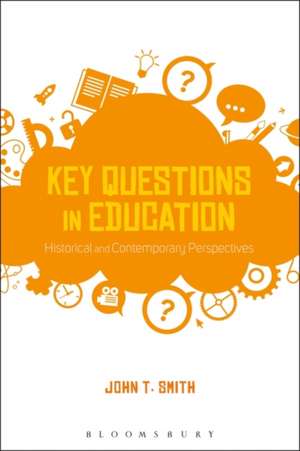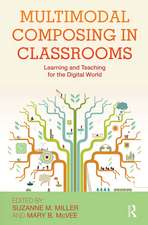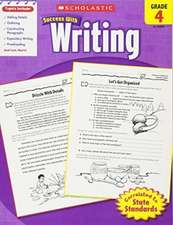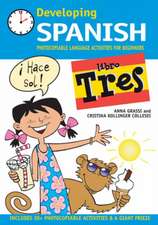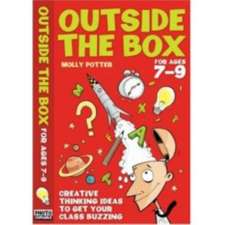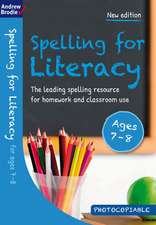Key Questions in Education: Historical and Contemporary Perspectives
Autor Dr John T. Smithen Limba Engleză Paperback – 15 iun 2016
| Toate formatele și edițiile | Preț | Express |
|---|---|---|
| Paperback (1) | 185.93 lei 6-8 săpt. | |
| Bloomsbury Publishing – 15 iun 2016 | 185.93 lei 6-8 săpt. | |
| Hardback (1) | 773.81 lei 6-8 săpt. | |
| Bloomsbury Publishing – 15 iun 2016 | 773.81 lei 6-8 săpt. |
Preț: 185.93 lei
Preț vechi: 230.67 lei
-19% Nou
Puncte Express: 279
Preț estimativ în valută:
35.58€ • 37.15$ • 29.44£
35.58€ • 37.15$ • 29.44£
Carte tipărită la comandă
Livrare economică 05-19 aprilie
Preluare comenzi: 021 569.72.76
Specificații
ISBN-13: 9781474268738
ISBN-10: 1474268730
Pagini: 192
Ilustrații: 11 bw illus
Dimensiuni: 156 x 234 x 18 mm
Greutate: 0.39 kg
Editura: Bloomsbury Publishing
Colecția Bloomsbury Academic
Locul publicării:London, United Kingdom
ISBN-10: 1474268730
Pagini: 192
Ilustrații: 11 bw illus
Dimensiuni: 156 x 234 x 18 mm
Greutate: 0.39 kg
Editura: Bloomsbury Publishing
Colecția Bloomsbury Academic
Locul publicării:London, United Kingdom
Caracteristici
Key ideas are defined at the beginning of chapters, boxed vignettes provide case studies for student discussion and extensive further reading lists all guide the reader carefully through the contemporary questions being discussed in each chapter
Notă biografică
John T. Smith was formerly Senior Lecturer in Education at the University of Hull, UK. He has taught on Secondary and Primary PGCE courses as well as undergraduate and Masters Education courses for over twenty years.
Cuprins
List of IllustrationsPrefaceAcknowledgementsList of Abbreviations1. Does Childhood Have a Future - or a Past?2. What Does Society Expect from Schooling? 3. How Far Should the State Interfere in Education?4. How Much Influence Should Religion Have in Schools? 5. Why Do Children Misbehave?6. How Are Children to Be Taught? 7. Why have girls (and boys) underachieved in education?8. Why has Citizenship Education within the National Curriculum been so contentious? 9. Should Sex and Relationships Education be Part of the School Curriculum?10. Should Schools be Feeding their Pupils?11. Has Elementary Teaching Ever Been a Profession? 12. What Might Schools Be Like in the Future? ReferencesIndex
Recenzii
Key Questions in Education is an essential read for anyone interested in education ... I found this book incredibly informative and thought provoking, as a teacher, senior lecturer of childhood, and someone who is deeply interested in education. I strongly recommend it.
[This book] provides a sound background to some key educational issues from a wider perspective ... It explores the debate around the status of teaching as a profession and would be of value to those engaged in further education.
This book has the rare merit of addressing a wide range of key questions which get to the heart of perennial disagreements over the nature and purpose of education, whilst at the same time making the answers accessible to a wide audience. Each chapter shows how the question asked is rooted in changing social and political understandings which the author sets out in detail. In so doing, the book reflects deep historical scholarship, yet a clear understanding of contemporary issues.
[This book] provides a sound background to some key educational issues from a wider perspective ... It explores the debate around the status of teaching as a profession and would be of value to those engaged in further education.
This book has the rare merit of addressing a wide range of key questions which get to the heart of perennial disagreements over the nature and purpose of education, whilst at the same time making the answers accessible to a wide audience. Each chapter shows how the question asked is rooted in changing social and political understandings which the author sets out in detail. In so doing, the book reflects deep historical scholarship, yet a clear understanding of contemporary issues.
